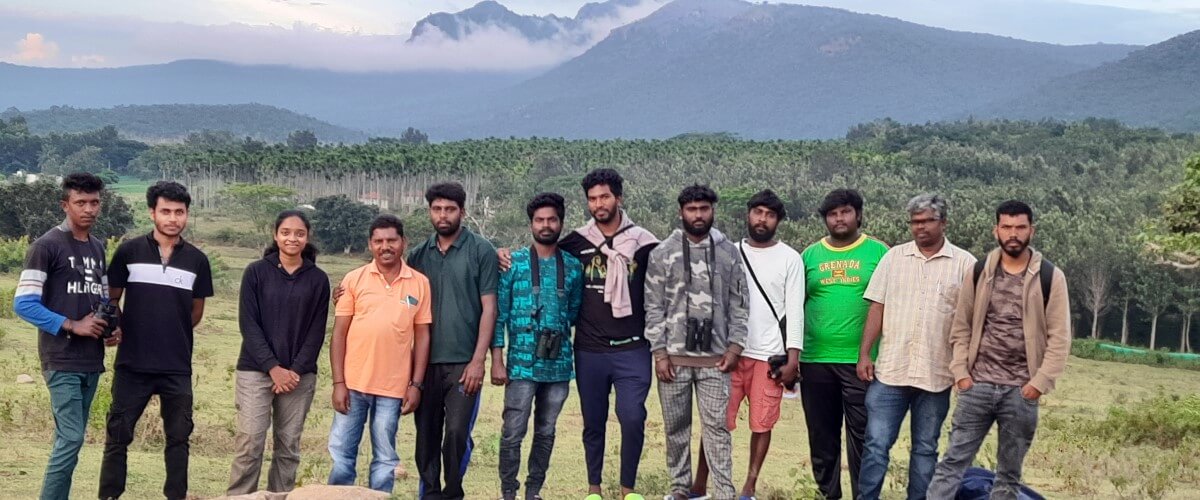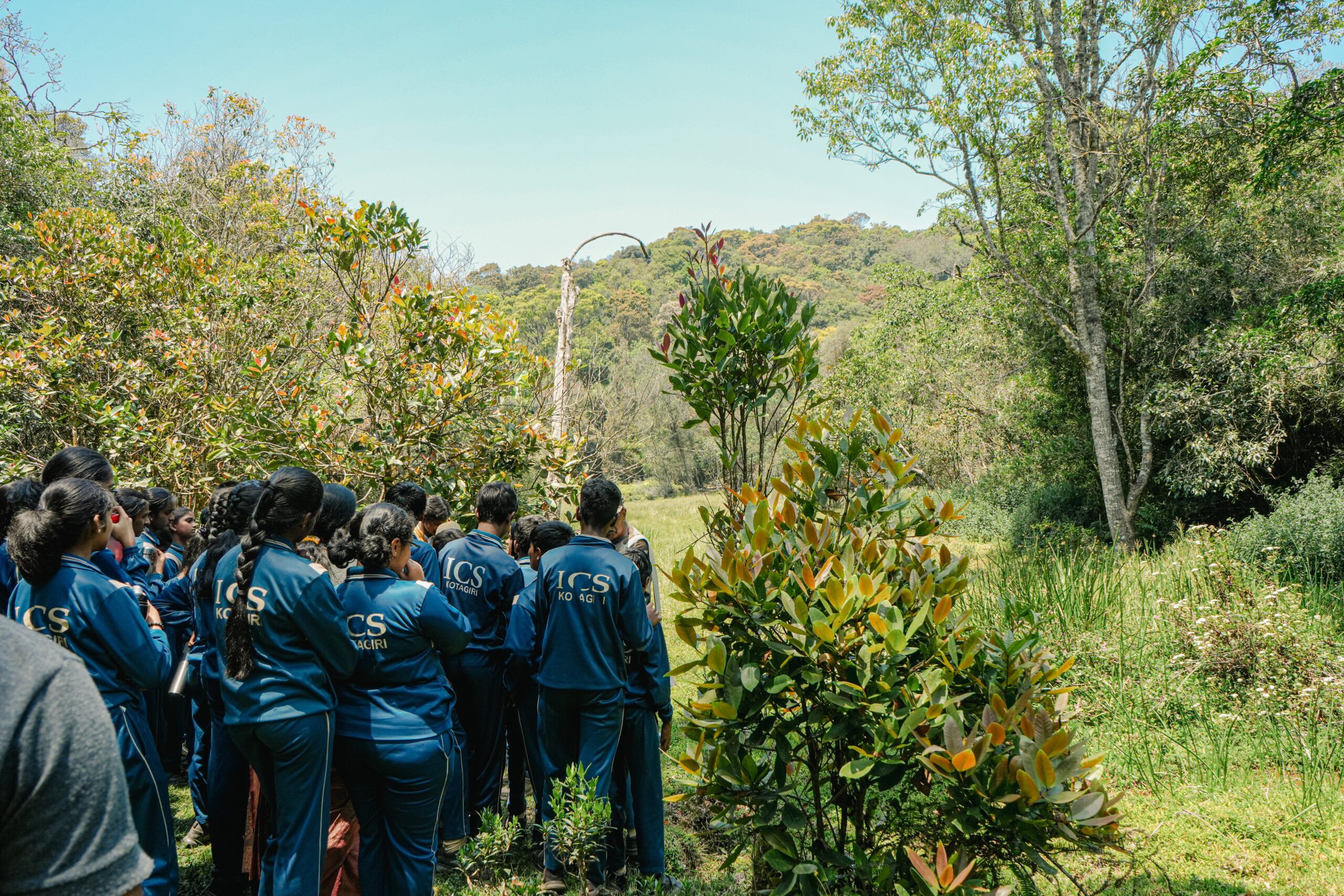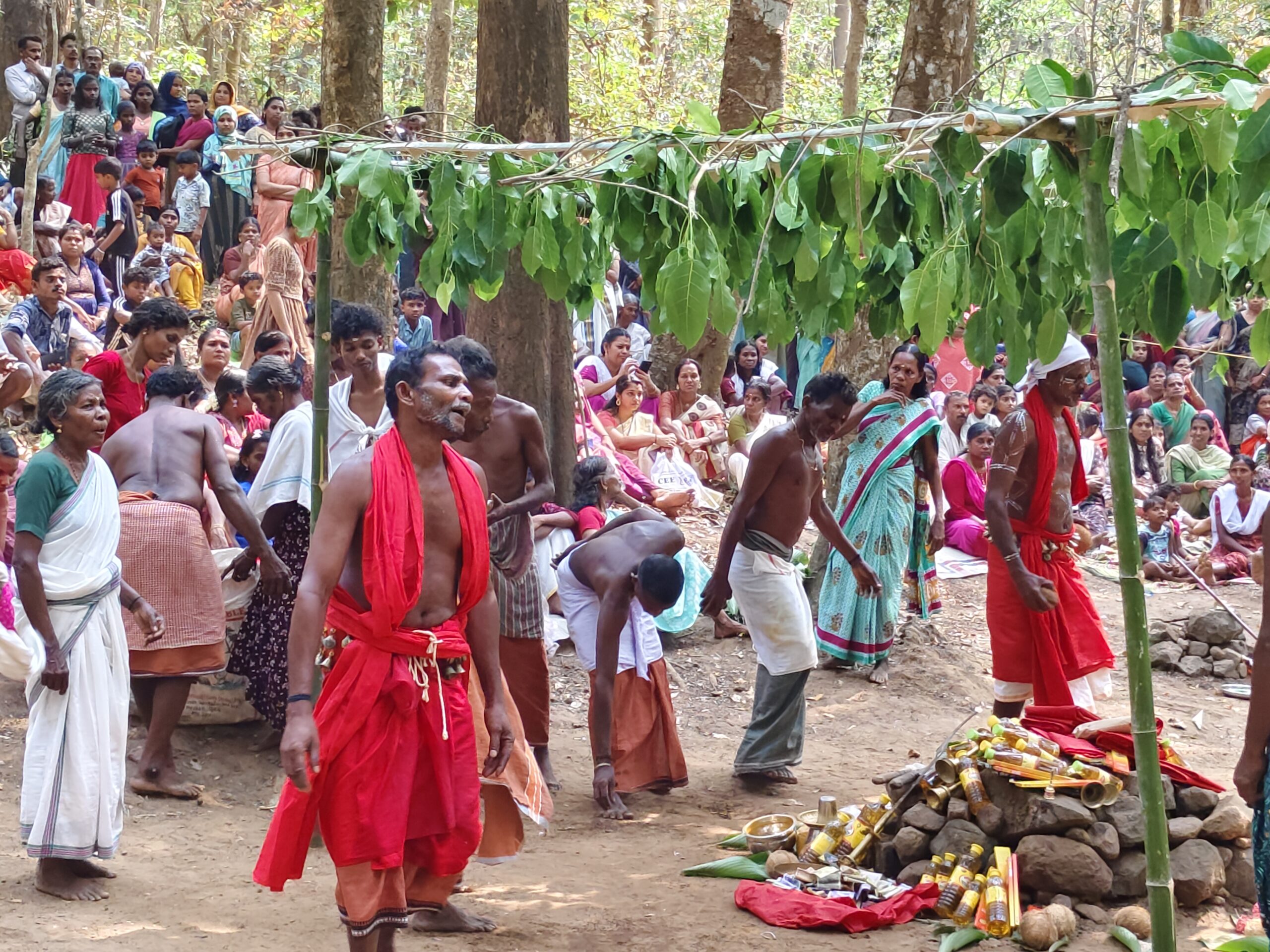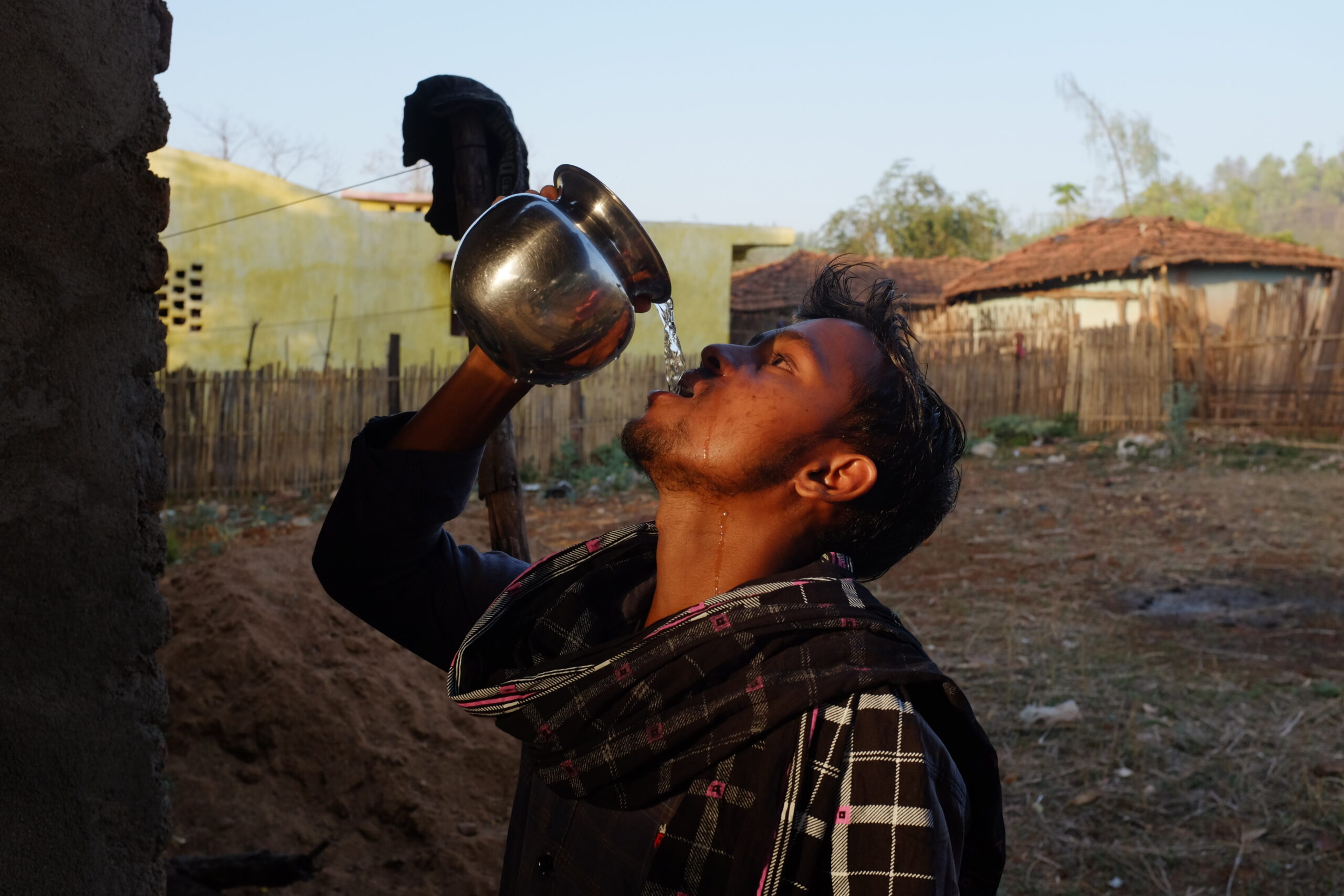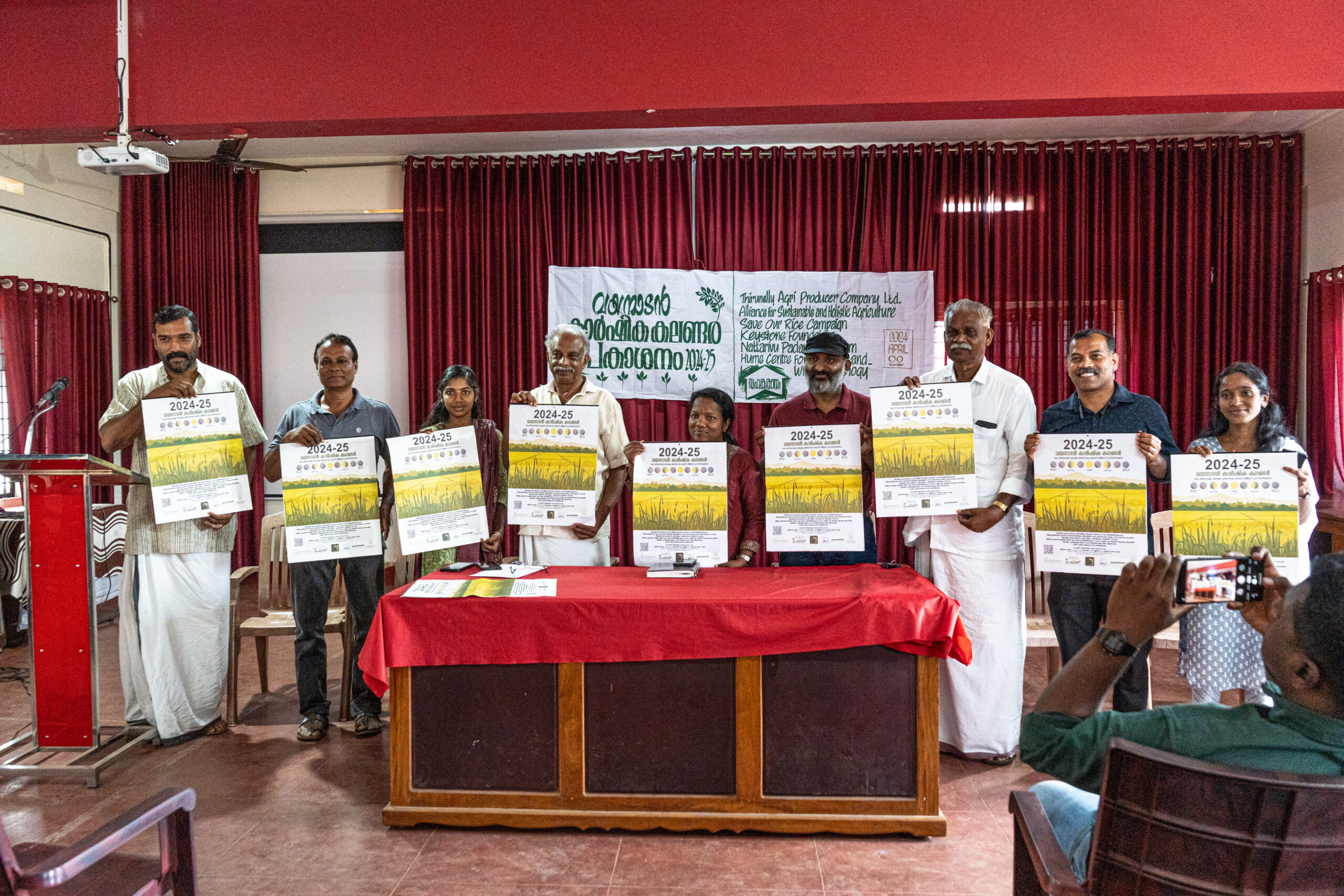October 13, 2022
By Vandana Kannan
Technical Coordinator – Wildlife Biology (Sathyamangalam)
Conservation education in rural communities is no streamlined task – there is no ‘best’ way to raise awareness among the public. Keystone’s Biodiversity Conservation teams at our field centres across the Nilgiris are constantly looking for new ways to engage with the people, with the intent being to deepen both theoretical and practical ecological knowledge, and impart insights that will hopefully leave a lasting impression.
Our team at the Arepalayam Field Ecology Centre (Sathyamangalam) conducted a three-day-long wildlife training programme on ecology (October 11-13). The objective was to incite curiosity and shift perspectives in locals about the animals they share their spaces with. Hailing from areas where human-wildlife interactions are highly frequent, the people of Kotagiri and Sathyamangalam often harbour varying attitudes toward wildlife, being witnesses and unwitting participants in conservation projects in their villages and towns. Along with sharing our insights on animal behaviour and discussing novel perspectives of human-wildlife interactions and conservation goals, we hope to invoke renewed interest and deliberate, informed participation in wildlife projects and field surveys. We also plan to extend the training to the Forest Department to talk about research methodologies and field techniques.
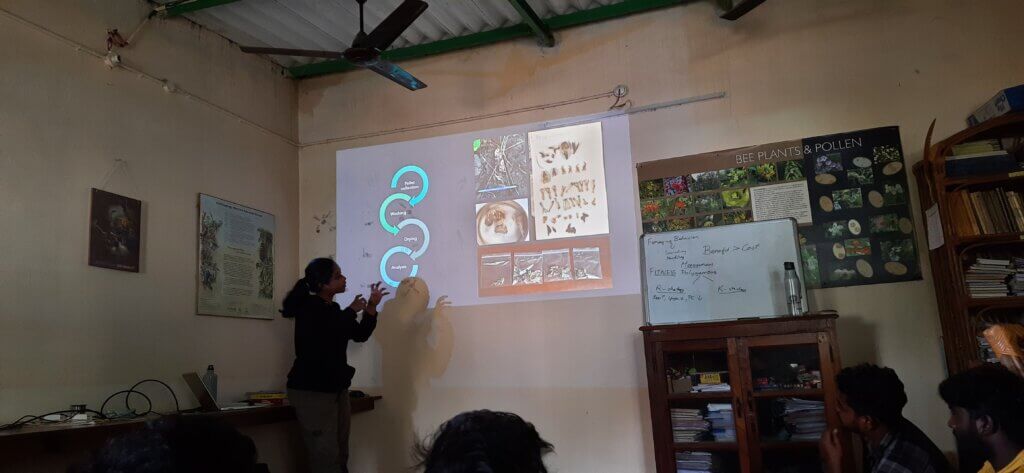
The training was attended by several Keystone staff (Ramajeyan, Simbu and Chandrasekar) and five local individuals from Kotagiri. Mahadesh, Shivanna, Bupathy and Vishnu from our centre also participated. Day one began with an early morning trail through the forest, with talks on the basics of ecology and evolution, followed by wildlife studies. After a hearty lunch, we split the participants into two groups for a fun, practical session. They were asked to conduct indirect animal sign surveys and birdlife observations in Hasanur.
Day two also began on the field, with a repetition of the previous day’s activities. We also organized a quiz on topics covered the previous day, followed by talks on animal relationships, wildlife conservation, and some lab work. All lectures were accompanied by several interesting videos to help solidify learnings and plenty of open discussions. We also screened a documentary on the renowned Hornbill Nest Adoption Programme organised by Nature Conservation Foundation with the Nyishi community in Pakke, Arunachal Pradesh. For the last activity of the day, participants were then split into three teams, each receiving a conservation challenge that they had to find solutions for, and present to the room. We also went on an exciting night transect to a nearby pond and peered around for amphibians.
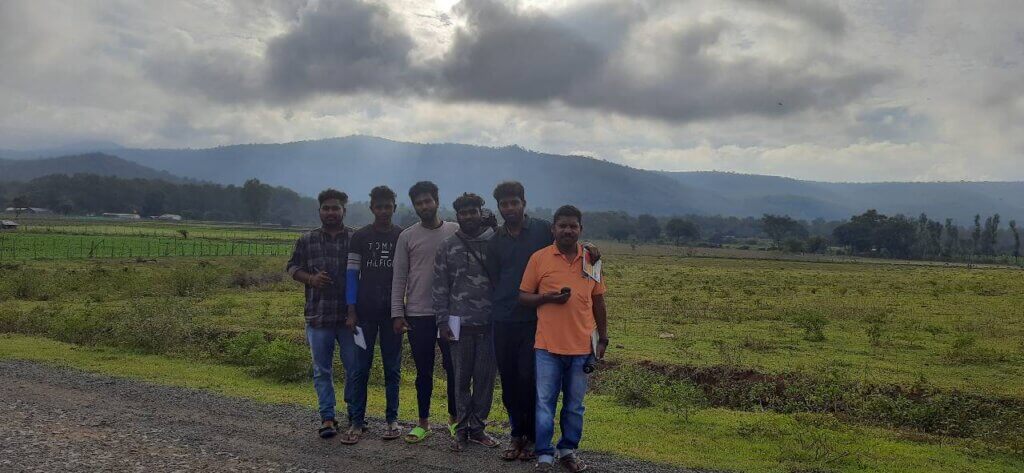
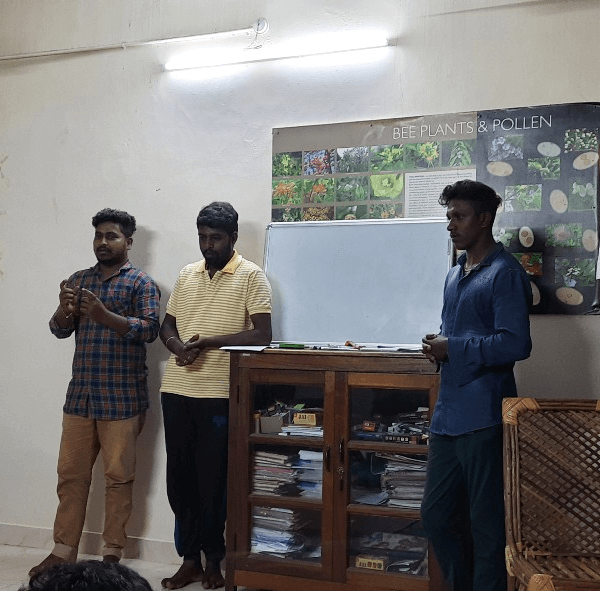
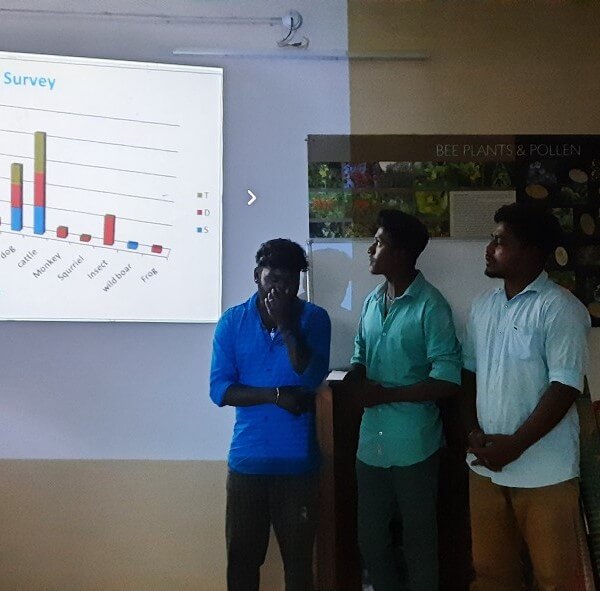
On the last day, we got the groups to focus on data cleaning, analysis and visualisation. Before beginning to organise their data, we had a discussion on what defines data, and the various steps to working with it. All groups entered and analysed their data from the first two days and presented it to everyone. The training ended with a documentary screening of ‘The Ivory Game’, a powerful film on wildlife trafficking, with a focus on elephants in Africa.
If you’d like to watch the videos we screened during the training, here’s a list, all of which can be found them on YouTube:
- India: Elephants in My Backyard (Al Jazeera English)
- The Last Hop(e) (Pradeep Hegde)
- Solving Crimes Against Animals with Forensic Experts (Great Big Story)
- How Wolves Change Rivers (Sustainable Human)
- Pakke Paga – Protecting the Hornbills of Arunachal Pradesh (Adarsh Raju)
- Our Planet by David Attenborough (Netflix original series)
- The Bowerbird’s Grand Performance (BBC Earth)
- Big Brother Eviction Cuckoo Style (BBC Earth)
- Iguanas vs Snakes from Planet Earth II (BBC Earth)
- Crab vs Eel vs Octopus from Blue Planet II (BBC Earth)
- Drongo Bird Tricks Meerkats (BBC Earth)
- How Evolution Works (Kurzgesagt)

